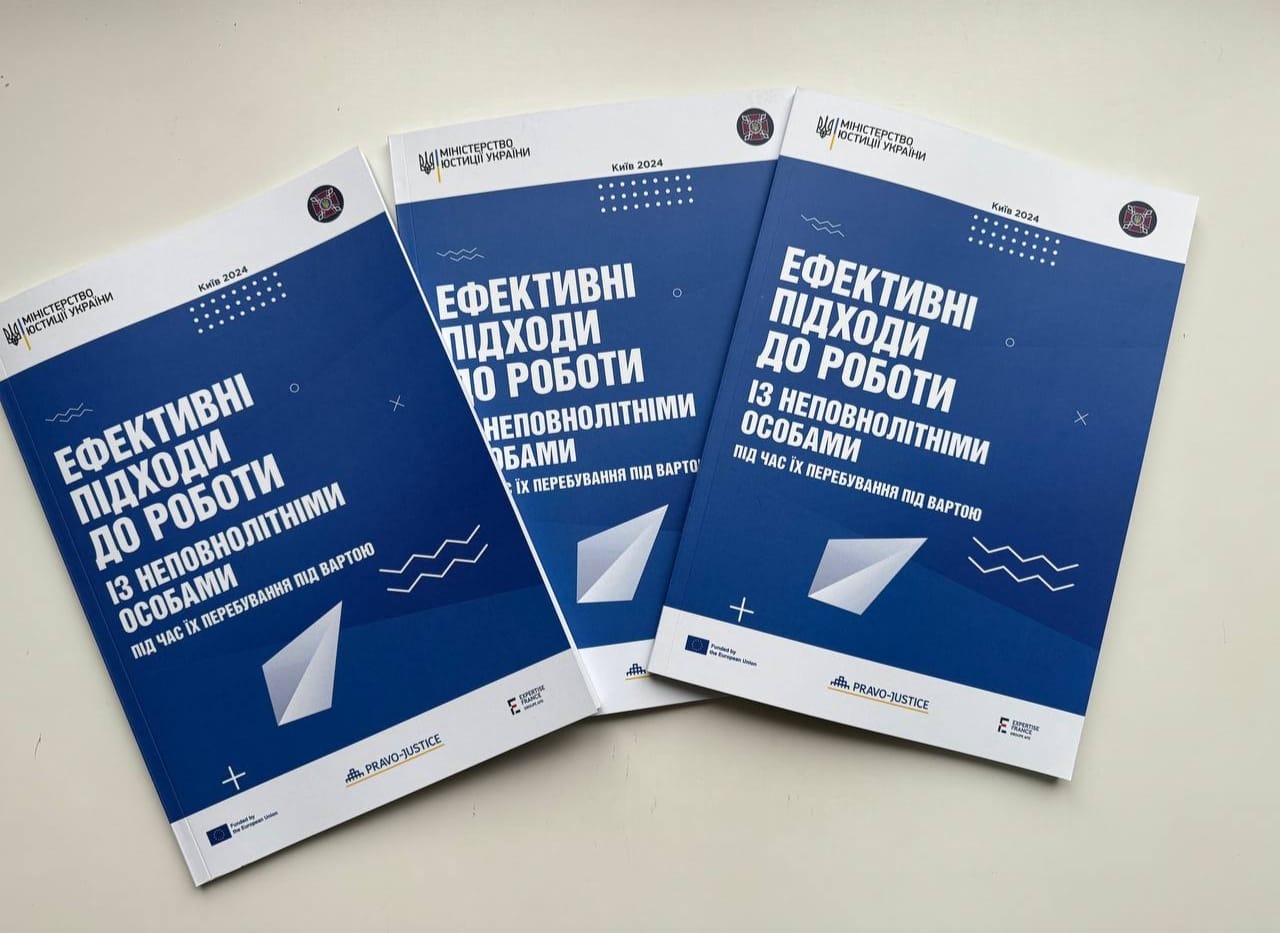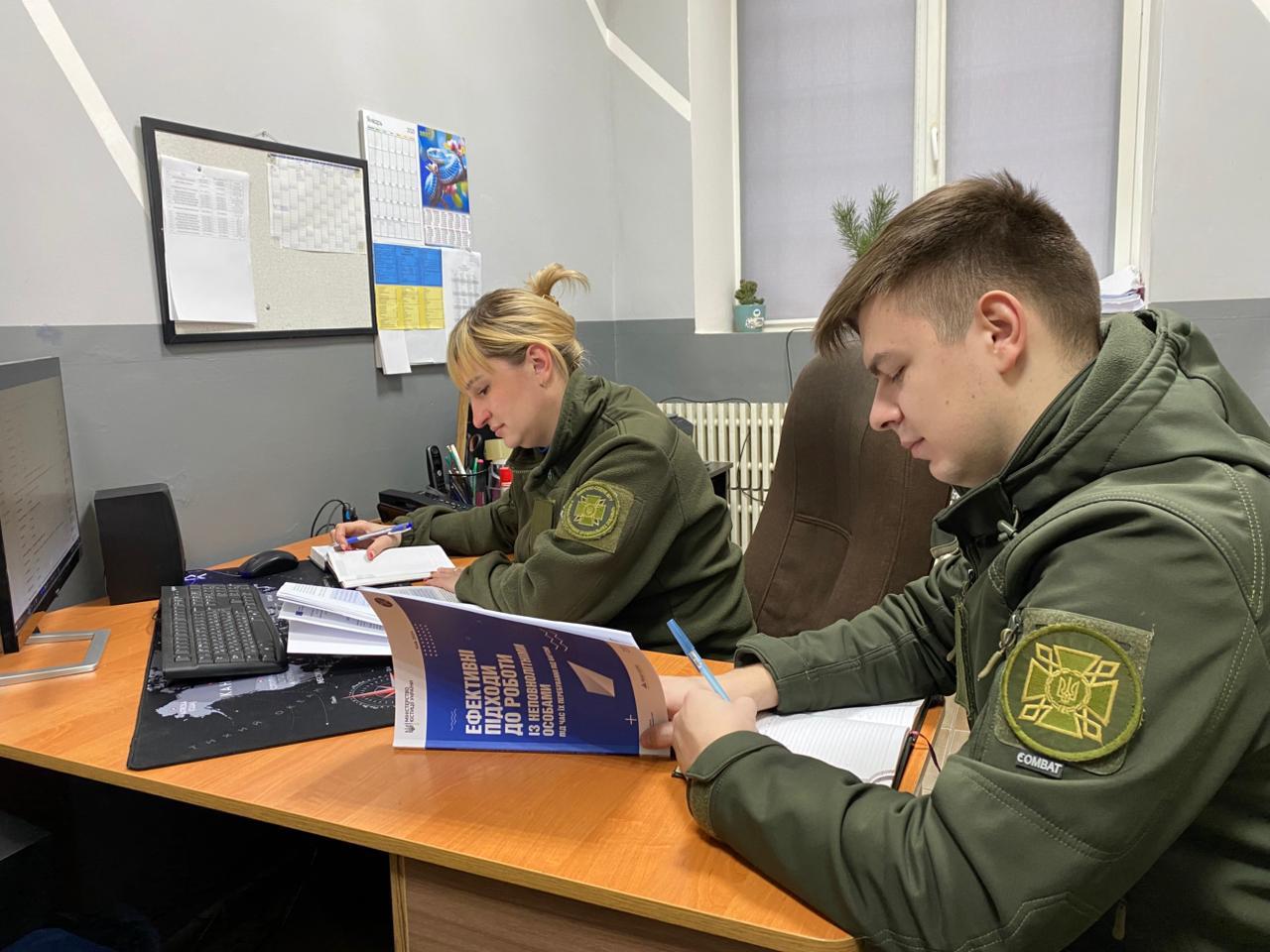EU Project Pravo-Justice Has Provided Pre-trial Detention Centres with Manuals on Efficient Approaches to Working with Juveniles in Detention

EU Project Pravo-Justice supported the development and publication of the manual “Effective Approaches to Working with Juveniles in Detention”. It was developed in cooperation with the staff of the Department for the Execution of Criminal Sentences to provide methodological assistance to staff working in pre-trial detention centres who are responsible for organising work with juveniles in detention.
“The Council of Europe’s Strategy for the Rights of the Child for 2022-2027 ‘Children’s Rights in Action: From Continuous Implementation to Joint Innovation’, which Ukraine must strictly adhere to, aims to promote the protection and fulfilment of the rights of the child throughout Europe. In the context of child-friendly justice, the strategy emphasises the need to adjust court procedures to children’s needs, which is crucial to prevent re-traumatisation and re-victimisation,” said Olena Kochura, co-author of the Manual, Key Expert on Reforming the Penitentiary System and Probation at EU Project Pravo-Justice.
According to her, a child must understand and trust the justice system and be confident in using it.
“This Manual will contribute to building a new policy for working with juveniles who ended up behind bars. It is essential to continue working with adolescents and promote their development even when they are in custody,” she added.

The Manual summarises best international practices for working with juvenile detainees. These practices will help enhance the professional skills of the staff working in the social and psychological service of pre-trial detention centres, improve the psychological counselling system, and help deliver social, educational, preventive and psychological work with juveniles depending on their individual needs and traits.
Valerii Kalivoshko, Head of the Department of Resocialisation and Social Rehabilitation of the Department for the Execution of Criminal Sentences, said that the manuals will help to further implement pro-European approaches in working with juveniles while they are in detention.
“We are grateful to our long-term partner, EU Project Pravo-Justice, for their continued assistance in building a human-centred penitentiary system. This Manual will contribute to introducing a unified toolkit for the staff working in the social and psychological service responsible for organising work with juveniles in detention, including screening and planning individual work tailored to juveniles’ individual needs,” said Valerii Kalivoshko.